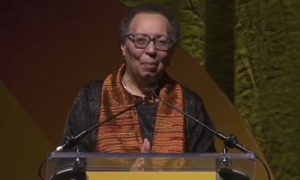Author(s): The Wallace Foundation
- Catherine H. Augustine
- Lindsey E. Thompson
Published: May 2020 by the RAND Corporation
Report Intro/Brief:
“This report offers information on public policies that support, or constrain, summer learning efforts—and guidance to organizers of such efforts to help them secure and maintain support for their programs.
The report draws on the experiences of five urban school districts that, along with community partners, took part in the National Summer Learning Project, a multi-year initiative sponsored by The Wallace Foundation, to understand whether and how voluntary district-run summer learning programs can help promote students’ success in school. Researchers looked at how summer learning leaders in these districts navigated, and in some cases, shaped, a complex array of federal, state and local policies that affect important aspects of summer learning, including program quality, the number of slots a district can offer, and the district’s ability to continue to offer programming from summer to summer. They found:
- District-level policies have the greatest effect on summer programs. For example, policies that determine which teachers summer programs can hire can have an impact on program quality.
- Federal agencies provide the most funding and greatest number of funding opportunities for summer programs. These opportunities can be competitive; applying requires among other things, having skilled grant writers.
- A few states have their own significant funding streams for summer programs, but the main role of the state is administering federal funding, interpreting federal rules and guidelines, and regulating the use of funding.
- A few cities have used money raised through ballot initiatives, budget set-asides and property tax levies—all of which require public support—to fund summer programs.
The authors recommend that summer learning leaders:
- Cultivate relationships with district, city and state policymakers,
- Measure and communicate the link between summer programs and improved student outcomes,
- Advocate for an official school board policy and decision-making body for summer learning,
- Identify district policies and practices that hinder planning and running summer programs, and
- Advocate for clearer communication from state agencies about the availability of state and federal funding opportunities for summer learning programs.
Points of Interest:
- Summer learning organizers would be wise to build relationships with districts leaders who decide how to allocate revenue and set policies that affect summer programs.
- Districts need to invest in program evaluation, skilled grant writing, and expertise in combining different sources of funding in order to compete for, and administer, federal and other grants for summer learning.
- When it comes to setting policies that support, or constrain, summer learning, districts play the biggest role. They determine everything from which students to serve to which teachers to hire.”
>>> CLICK HERE to see all of Youth Today’s REPORT LIBRARY































